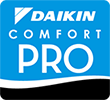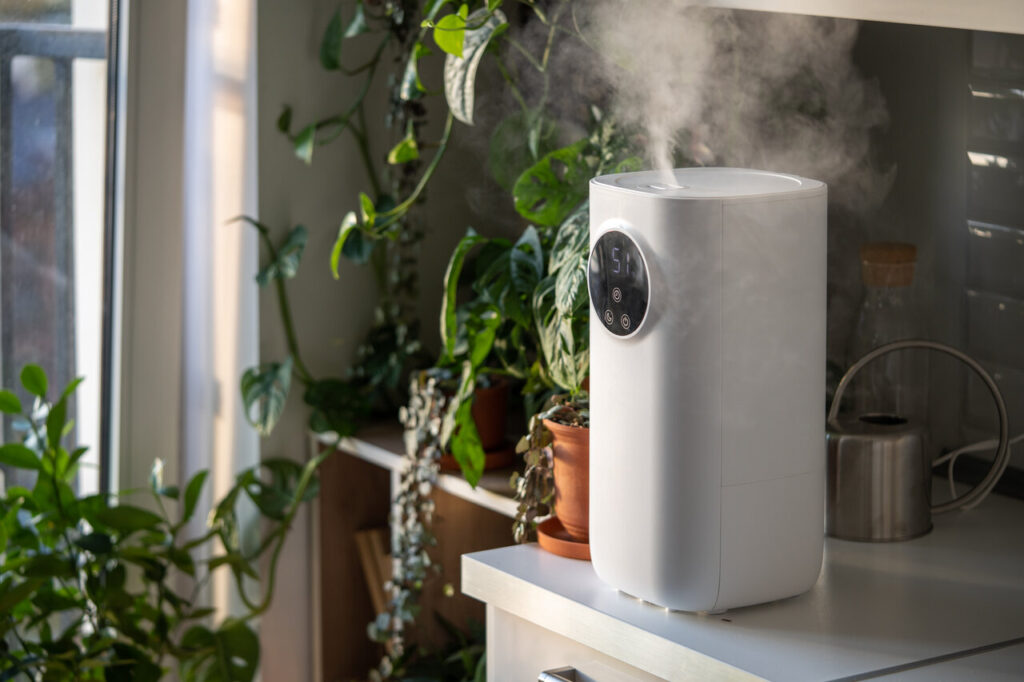Creating a comfortable, healthy, and energy-efficient living environment is a top priority for homeowners undertaking new residential construction projects. One frequently overlooked aspect of indoor comfort is maintaining the ideal indoor humidity level. Proper humidification plays a crucial role in enhancing indoor air quality, protecting your home’s structure and furnishings, and contributing to the well-being of you and your family.
We will discuss the significance of incorporating humidification systems in residential new construction projects, the various types of humidifiers available to suit different needs, and how our professionals can help you select and maintain the right system for your home.
Understanding the Types of Humidification Systems
To ensure optimal indoor air quality and comfort in your residential new construction project, it’s important to choose the right humidification system. There are several types of humidifiers available, each designed to address specific needs and preferences:
- Steam Humidifiers: These systems generate steam by heating water and then distributing it directly into your home’s air circulation. Steam humidifiers provide precise humidity control and high efficiency in maintaining the desired humidity level.
- Bypass Humidifiers: Bypass systems work in conjunction with your home’s furnace or HVAC system. They divert warm air through a water panel, adding moisture to the air through evaporation. Bypass humidifiers are generally low-maintenance and energy-efficient.
- Fan-powered Humidifiers: Similar to bypass systems, fan-powered humidifiers also utilize a water panel for evaporation. However, they incorporate a built-in fan to distribute the moisture more effectively. These systems can produce a higher output of humidity compared to bypass humidifiers, making them ideal for larger spaces.
By consulting with our professionals, you can determine the most suitable humidification system for your specific needs and preferences.
Factors to Consider When Choosing a Humidification System
To make an informed decision on the best humidification system for your new home, consider the following factors:
- Home Size: The size of your home plays a crucial role in determining the humidification system required. Some systems may have limitations in coverage, making it necessary to consider the square footage of your living space before making a selection.
- Climate: Local climate conditions can impact the performance of a humidification system. For instance, in areas with extremely cold winters, humidity levels can drop significantly, requiring a robust system capable of maintaining balance.
- Maintenance Requirements: Different humidification systems come with varying levels of maintenance needs, such as cleaning, filter replacements, and annual checkups. Consider your willingness and ability to commit to regular upkeep when selecting a system.
- Energy Efficiency: Energy consumption is another important aspect to consider. While some humidification systems may require more energy to provide optimal performance, they should still offer energy-saving features that contribute to lower utility costs.
Our technicians can help you evaluate these factors and guide you in choosing the best humidification system that meets your unique requirements.
The Benefits of Proper Humidification in Your New Home
Investing in a humidification system for your residential new construction project offers numerous benefits. These advantages help create a comfortable and healthy living environment for you and your family:
- Health and Comfort: Maintaining optimal humidity levels can alleviate common discomforts associated with dry air. These include dry skin, irritated eyes, and aggravated respiratory issues such as asthma and allergies.
- Protect Your Home and Belongings: Proper humidification helps to safeguard your home’s structure and furnishings from the damaging effects of excessively dry or moist conditions, such as warping or rotting.
- Energy Savings: Humid air retains heat more effectively than dry air, allowing homeowners to lower their thermostats while still maintaining warmth and comfort. This results in reduced energy consumption and utility costs.
- Improved Indoor Air Quality: By maintaining balanced humidity levels, you can minimize issues such as mold growth, static electricity, and excessive dust accumulation, ultimately improving the overall indoor air quality of your home.
Professional Installation and Maintenance of Humidification Systems
To get the most out of your humidification system, proper installation and maintenance are essential. Our professionals have the necessary expertise and experience to ensure:
- Optimal Installation: We’ll ensure that your humidification system is correctly installed, operating efficiently, and seamlessly integrated with your HVAC system for maximum performance.
- Timely Maintenance: Regular maintenance, such as cleaning and filter replacements, is vital to the longevity and effectiveness of your humidification system. Our technicians can help you establish a routine maintenance schedule to keep your system in top condition.
- Troubleshooting: Should you encounter issues with your humidification system, our professionals can quickly diagnose and resolve any problems, maintaining the comfort, air quality, and health of your home.
Conclusion
Incorporating a humidification system into your residential new construction project is an investment in the comfort, health, and well-being of you and your family. With the guidance of our professionals at Baker Air Conditioning & Heating, you can choose and maintain the ideal system for your specific needs, creating a living environment that promotes health and comfort while protecting your home and belongings. Contact our HVAC company in Camdenton today to discuss how we can help you incorporate the perfect humidification system in your new home, ensuring a balanced and comfortable living space for years to come.






